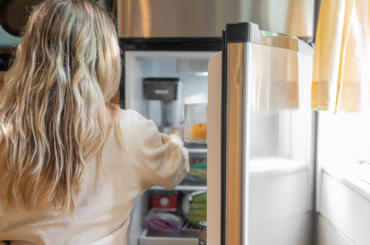We’ve all heard by now about the negative impact of the Covid-19 pandemic on both children’s and parents’ mental health and wellbeing. But a new study sheds some light on a worrying dynamic that is uniquely detrimental to multi-child families.
The research, conducted at the University of Waterloo in Ontario, Canada, shows that one child in a family typically experiences more pandemic-related stress, anxiety, anger, and/or depression than their siblings. Unfortunately, the researchers found that parents in multi-child families tend to react more negatively and harshly toward the sibling who is struggling the most with their mental health.
In a family with more than one child, the behaviors and mental wellbeing of different family members all affect each other greatly—especially when compounded by the stress and isolation of the pandemic. Dillon Browne, Ph.D., lead author of the study and professor of clinical psychology at the University of Waterloo, explained, “Struggles with mental health among family members exacerbate each other in a feedback loop. Our study suggests that the direction of influence appears to go from the child’s mental health to parenting, not parenting to child mental health.”
How can parents turn this dynamic around so that they’re working to support all of their children’s unique needs, rather than exacerbating a negative cycle in which one sibling feels increasingly less connected than the rest?
The answer may lie in family therapy, the study authors suggest. “Understanding children’s mental health difficulties during COVID-19 requires a family system lens because of the numerous ways the pandemic affects the family as a unit. Comprehensive interventions for children’s mental health require an examination of caregiver, sibling, and whole-family dynamics,” Dr. Browne said.
Of course many parents and caregivers, already in financial distress, will wonder how they could possibly afford family therapy sessions at this time. Know that there are options out there for low-cost or no-cost therapy! If your health insurance doesn’t cover therapy sessions or you don’t have insurance, here are some approaches for beginning your search:
School counselors
Mental health services through public schools (and many colleges and private schools) are free, so it’s a good idea to start with your child’s school counselor or psychologist to assess the situation and see if they have suggestions for free or affordable family therapy.
Sliding scale therapists
Many mental health practitioners are committed to offering a range of pricing options, depending on their clients’ ability to pay. Open Path Psychotherapy Collective can connect you to therapists who charge between $30 and $80 per session. In addition, the GoodTherapy therapist search tool allows you to narrow your search to those who offer a sliding scale.
It also doesn’t hurt to ask a few local therapists if they offer a sliding scale or even pro-bono (free) services! Even if they don’t, they may be able to refer you to someone who does.
Community mental health clinics
Low-fee or free mental health services are available at community clinics across the country to those without insurance or without the ability to pay out-of-pocket. To find a clinic near you, contact the National Alliance on Mental Illness (NAMI) HelpLine, or call 211.
Local universities
If there’s a university nearby with a graduate program in social work, psychology, psychiatry, or a related field, chances are they have a student training program that offers mental health services to the public at very low price points. Get in touch with the university to find out!
Employee Assistance Programs (EAPs)
Check with your employer to see if they offer any mental health benefits. Some provide employees with access to a free counseling hotline or a few free counseling sessions, which could help you get initial advice on your family’s situation and obtain a referral to another affordable service.
Support groups
A wide variety of support groups exist for individuals and families to connect with others who struggle with similar mental health or family issues. Some groups are free or low-cost, and some meet online. Some groups are run by peers while others are led by mental health professionals.
Begin to look for a support group by finding a local Mental Health America affiliate or browsing the directory of the National Mental Health Consumers’ Self-Help Clearinghouse. Also consider joining a free NAMI Family Support Group for adult family members of individuals with mental health conditions.
Free hotlines
If you are not sure where to turn next or want more immediate support, you can always call a free hotline (or text line) and talk to someone who is trained to listen to and guide people in crisis or under stress. Great options include the Parent Stress Line, Teen Line, and Crisis Text Line.
Need more support? The National Institute of Mental Health and Youth.gov are two helpful resources for connecting families and young people with mental health services. The Society for Adolescent Health and Medicine also has a list of mental health resources to help parents identify and locate good mental health services, navigate specific disorders, find networks of parents going through similar situations, and more.







